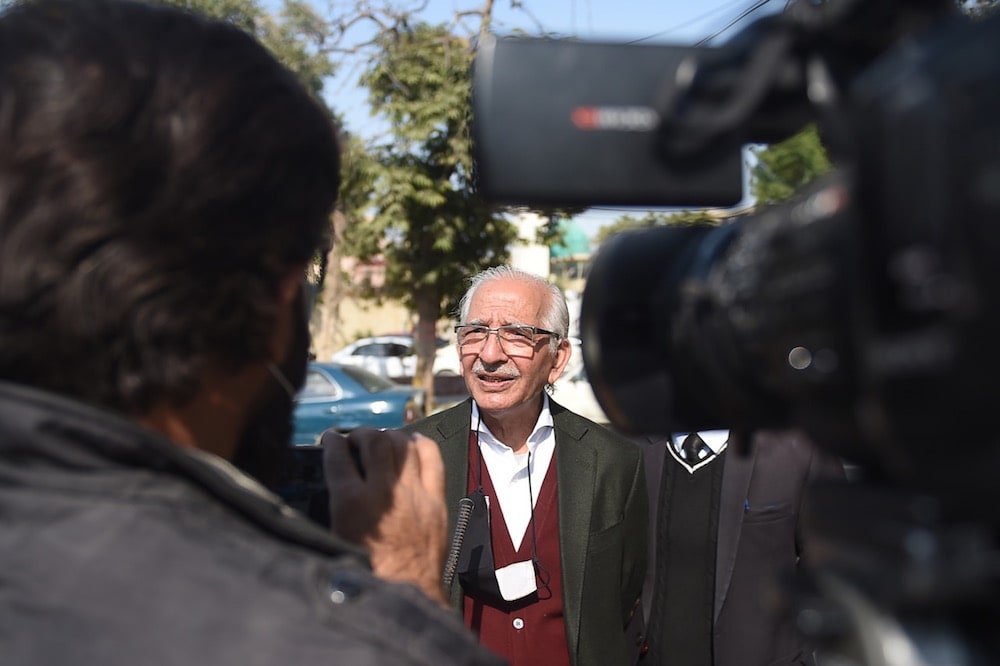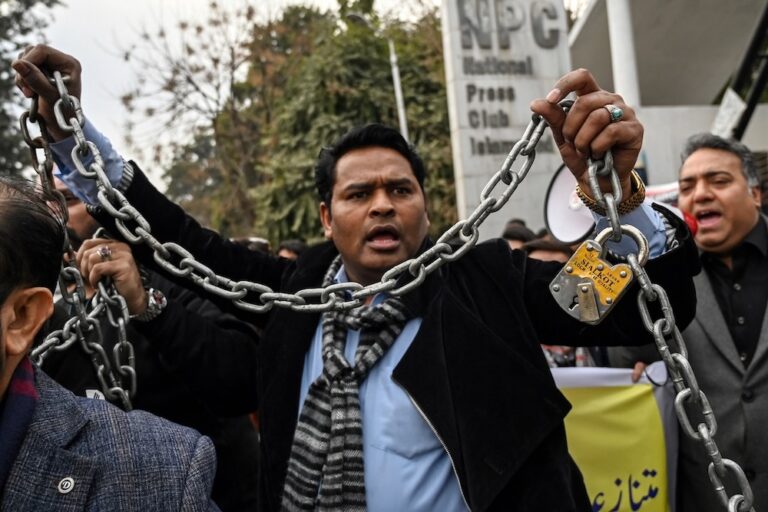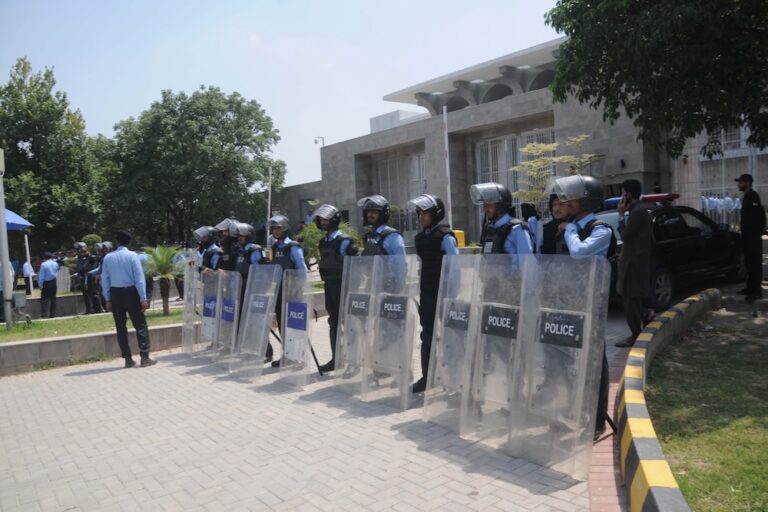The Pakistan Press Foundation played a leading role in the campaign for the passage of journalists’ protection legislation.
This statement was originally published on pakistanpressfoundation.org on 25 May 2021.
Pakistan Press Foundation (PPF) has welcomed the presentation of the landmark Sindh Protection of Journalists and Other Media Protection Bill 2021 in the provincial assembly of Sindh. PPF also welcomed the fact that a similar bill had earlier been presented in Pakistan’s National Assembly, where it has been sent to the Human Rights Committee for consideration.
The bill presented in Sindh envisages the creation of a robust, inclusive and autonomous Commission on Safety of Journalists and Other Media Professionals comprising government duty bearers as well as media stakeholders, including the Pakistan Federal Union of Journalists (PFUJ), the Council of Pakistan Newspaper Editors (CPNE), the All Pakistan Newspaper Society (APNS), the Pakistan Broadcasters Association (PBA), the Sindh Commission on Information Commission and the Human Rights Commission of Pakistan (HRCP).
Both bills presented by the federal and provincial governments recognise journalists’ right to professional privacy and undertake to implement the United Nations Plan of Action on the Safety of Journalists and the Issue of Impunity.
PPF played a leading role in maintaining momentum for the passage of legislation on journalists’ protection, following the presentation in February 2020 of the draft Protection of Journalists and Media Professionals Bill 2020 in the federal cabinet by Human Rights Minister Shireen Mazari.
The process initiated by PPF, culminating in the presentation of these bills at the national and provincial level, included a review of the draft bill by international experts to bring it in line with international practices; organising a series of consultative sessions with editors, journalists, lawyers and human right practitioners; and the publication of a policy paper on the draft with specific clause-wise recommendations on improving the draft bill.
The publication of the policy paper was followed by lobbying efforts with leaders of political parties at national and provincial levels, that included meetings with President of Pakistan Arif Alvi, ministers, senators, members of the national and provincial assemblies. The political leaders appreciated the efforts of PPF and assured that the bill would soon be introduced in the relevant assemblies.
The Government of Sindh in particular expressed determination to pass the journalists’ protection bill without any undue delay. At their request, PPF drafted the provincial Sindh Protection of Journalists and Other Media Protection Bill 2021, which formed the basis of further consultation in an informal committee set up by the Sindh government. This committee was comprised of the Secretary of Information and Director of Information of the Sindh Government as well as PPF, PFUJ, the Karachi Press Club, the CPNE, senior media academic Professor Tauseef Ahmed and senior journalists Qazi Asif and Mazhar Abbas.
The committee sent the draft to a senior constitution lawyer to review and then in a series of consultations finalised the draft on May 18. Subsequently, it was presented to the Sindh Assembly on May 21. The bill was then referred to the Law Committee of the Sindh Assembly which approved the Bill on May 24.
PPF Secretary General Owais Aslam Ali expressed appreciation for the support from Sindh Government, particularly Sindh Information Minister Syed Nasir Hussan Shah, Law Minister Murtaza Wahab, information secretaries Ejaz Baloch and Rafique Ahmed Buriro and Sindh Director of Information Saleem Khan.
Ali also appreciated the vision and determination of the federal Human Rights Minister Shireen Mazari who was responsible for providing a workable framework for journalists’ safety legislation in Pakistan. He hoped that prompt and effective consultations would be held in all media centres of the country so that the federal bill could be further improved and then be approved at the earliest by the National Assembly.
Ali expressed the hope that the Punjab, Khyber Pakhtunkhwa and Balochistan provinces, as well as Gilgit Baltistan and Azad Kashmir, would follow suit and enact similar laws without any delay.



